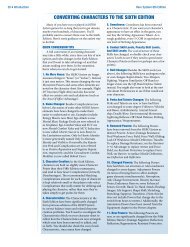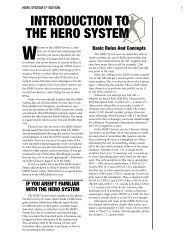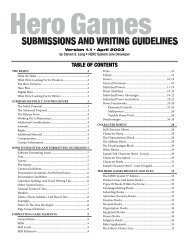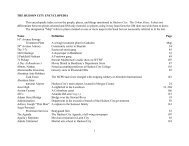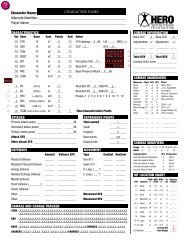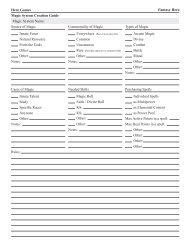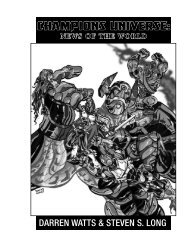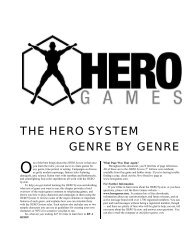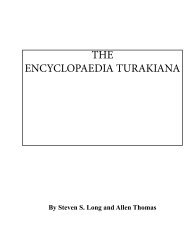You also want an ePaper? Increase the reach of your titles
YUMPU automatically turns print PDFs into web optimized ePapers that Google loves.
POWERS<br />
Page 118 — General <strong>Rules</strong><br />
Q: If a character has a Power like Flash, Drain, or Dispel with the Advantage Does Knockback,<br />
and the target lacks the Sense or ability the Power affects, does the target still take Knockback?<br />
A: No. As noted on APG 54, an Adjustment Power with a secondary effect (such as Does<br />
Knockback, which is specifically cited) doesn’t have that secondary effect if the target doesn’t<br />
have the Characteristic/Power/whatever that the Adjustment Power affects. For example, a Drain<br />
Blast, Does Knockback, if used against a target with no Blast attack, has no effect at all — it<br />
doesn’t cause Knockback.<br />
Generally speaking, this reasoning extends to other powers, including Dispel (which is<br />
similar to Adjustment Powers in many ways), Flash, and the like. If the target cannot be affected<br />
by the power because he lacks what it targets (e.g., a blind person hit with a Sight Group Flash; a<br />
person without Flight hit with Dispel Flight), then the secondary effect (such as Does<br />
Knockback) also cannot apply. Note, however, that having a lot of defense against an attack (e.g.,<br />
enough Sight Group Flash Defense to totally block a Flash) or being temporarily immune to a<br />
power (e.g., a character being protected from Sight Group Flashes because he was just affected<br />
by one and is now temporarily blind) does not qualify as “cannot be affected” — as used above,<br />
that term generally means it’s impossible for the character ever to be affected, not just<br />
temporarily impossible.<br />
As always, the GM should apply these rules with an eye toward common sense, dramatic<br />
sense, special effects, and game balance.<br />
Q: If a character Pushes a Constant power (or a power with the Advantage Costs END To<br />
Maintain), does he have to pay the Pushed END cost each Phase as well as the standard cost, or<br />
only when he activates the power?<br />
A: If a character wants to Push a Constant power, he must pay the extra END cost for Pushing<br />
every Phase that he wants the Push effect to enhance the Constant power in addition to the<br />
power’s standard END cost to maintain. If the Constant power only costs END to maintain, a<br />
character who wants to maintain a Pushed effect must pay the END cost for Pushing every Phase.<br />
Page 124 — Sensing Powers And Special Effects<br />
Q: What’s the perceivability of a Skill used as a Power?<br />
A: A Skill bought as a Power is considered Obvious in the same sense that Body-Affecting<br />
Powers and Size Powers are (i.e., they don’t typically produce a visible glow or anything like<br />
that, but their effect on the user, target, and so on is Obvious). Of course, if common sense<br />
dictates otherwise for a particular Skill (e.g., Stealth as a Power would be useless if it were<br />
Obvious), the GM can easily make a ruling.



